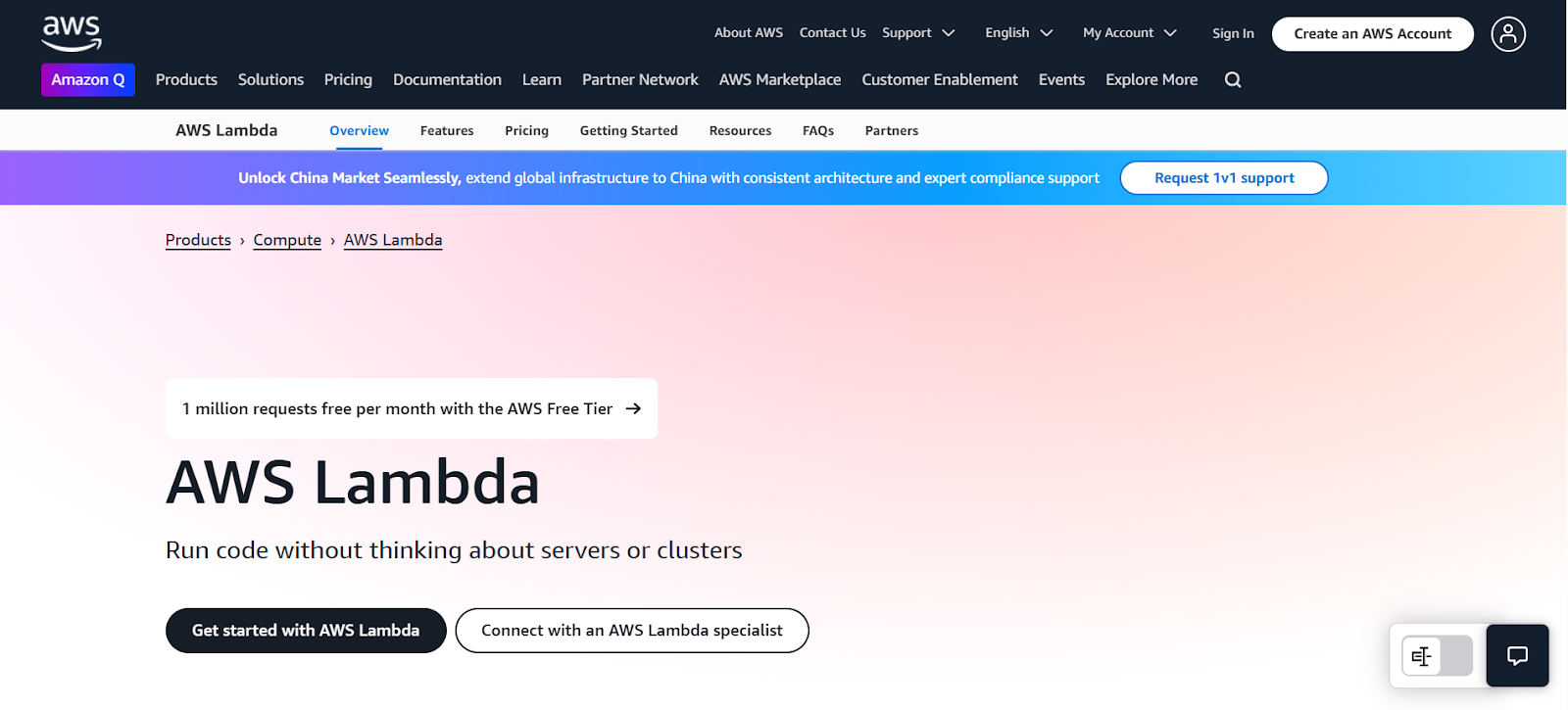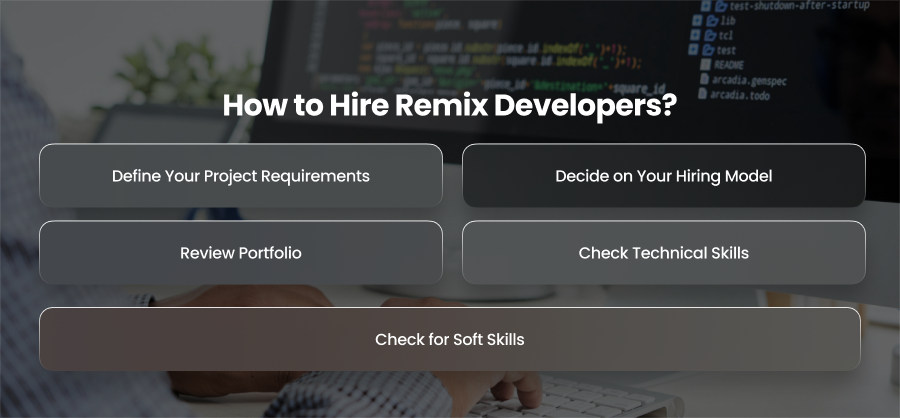According to BuiltWith, Remix has 49,688 live websites with over 19000 in the USA. This is because user expectations are increasing. Moreover, they are demanding faster load times and mobile first experiences. Hence, companies have to hire Remix developers to deliver exceptional results.
Moreover, Remix has emerged as a React based meta framework that redefines performance and developer experience. Remix also emphasizes web standards that make it easier to create scalable full stack apps.
Therefore, we will discuss what Remix is in this article, as well as what to look for in a Remix developer.
What is Remix?
Remis is a full stack web framework built on top of React. Moreover, Remix improves performance and user experience by rethinking data fetching and routing in React applications. Furthermore, it also offer server side rendering and HTML forms. Moreover, it also utilizes modern tools and APIs. Hence, this can result in a highly optimized and flexible framework that helps developers build better web apps.
Why Hire Remix Developers for Web Application Development?
Full Stack by Design
Remix provides a real full stack development experience, in contrast to standard frontend frameworks that need several connectors to handle server side logic. Additionally, it enables programmers to create the backend and frontend functionality in a single, cohesive codebase. This includes defining server side data fetching through loaders and handling form submission with actions.
Also, instead of fetching data on the client using hooks like useEffect, Remix runs data loaders on the server before rendering the page. Hence, this reduces unnecessary roundtrips and improves page performance from the start. Hence, this full stack architecture simplifies development and delivers a more streamlined user experience.
Web Standards
Remix’s dedication to web standards is one of its best qualities. Remix promotes the usage of browser APIs rather than abstracting them away. Moreover, developers can utilize native fetch() for making HTTP requests and FormData for handling form inputs. Also, the Request and Response objects from the Web Fetch API. This results in apps that are not only more predictable but are also easier to maintain.
Nested Routing
Routing is where Remix truly shines. It introduces a powerful nested routing architecture where each route is independently responsible for loading its data and handling its errors. This means that the parts of the page can update independently based on user interactions without reloading the entire UI. Hence, this modularity ensures faster interactions and enables a smooth app like experience. Plus, each nested route can define its own loader and error boundary. Hence, this provides a clear separation of concerns and better fault tolerance.
Error and Catch Boundaries
Error handling is another area where Remix provides reliable solutions. Also, rather than relying on global error states, Remix allows developers to define errors and catch boundaries at the route level. This implies that separate routes may manage their own issues without impacting the program as a whole. For example, just the product details page will gracefully fail if a server fault prevents it from loading; the rest of the application will continue to function normally.
Deployment Options

You are not restricted to a certain hosting environment by Remix. It can run on a variety of systems due to its extremely flexible design. This covers both more traditional Node servers like Express. Because of this flexibility, businesses are not limited by a certain deployment process.
Built In Progressive Enhancement
Remix is dedicated to improving things gradually. Even if JavaScript malfunctions or is turned off on the client side, the framework makes sure your application still functions. So, by using standard HTML features like forms and links, Remix delivers excellent experiences. Hence, this leads to greater accessibility and improved performance.
Faster Time to Market
Remix simplifies many of the traditional pain points of React development, such as routing and error management. Hence, this allows developers to build and ship features more quickly. Additionally, you hire experts who can launch your MVP more quickly without sacrificing quality when you work with Remix developers.
What Skills to Look for When Hiring Remix Developers?
Proficiency in React
Developers ought to be well versed in React. Additionally, you should seek out developers who are proficient in JavaScript and have worked with React components, including hooks and components. Additionally, they ought to understand how to leverage context APIs and hooks. Furthermore, having a firm grasp of JSX and being familiar with advanced patterns like render props or higher level components is beneficial.
Familiarity with Remix Routing
In Remix, routing works differently from conventional client side routers. Moreover, an excellent Remix developer should understand nested routes and dynamic parameters. Also, they should be familiar with route modules and layout composition. Moreover, they should be proficient in defining loaders and actions, which are server side functions for fetching data and handling form submissions.
Backend and Full Stack Development Skills
Furthermore, you should look for developers who are comfortable writing server side code and managing APIs. Also, they should be able to handle databases and configure deployment environments. Moreover, they should be familiar with Express or other Node frameworks. Additionally, they should understand the use of HTTP methods and REST principles. Also, they should be familiar with authentication flows and secure data handling.
Familiarity with Web Standards and APIs
Remix leans into native web technologies instead of abstracting them away. Hence, that’s why your ideal developer should be proficient in working directly with browser APIs and HTML forms. Building reliable and progressive web apps requires this understanding. Furthermore, developers are a great asset for creating inclusive and accessible apps if they know how to gradually improve functionality and guarantee cross platform and cross browser compatibility.
Understanding of Server Side Rendering
One of the Remix’s strengths is its server side approach. A Remix developer should understand how server side rendering works and how it impacts performance and SEO. So, you should look for candidates who can explain how data is rendered on the server and how caching strategies improve performance.
Knowledge of Error Boundaries
Remix introduces powerful error handling tools via ErrorBoundary and CatchBoundary components at the route level. Moreover, a competent Remix developer should be able to implement error handling that can prevent the entire application from crashing. Moreover, they should also know how to manage validation errors and HTTP errors.
Experience with Styling and Component Libraries
Although Remix doesn’t dictate how you style your application, developers should have experience using modern styling tools like Tailwind CSS. Moreover, they should be familiar with component libraries such as Radix UI. Hence, this enables developers to build aesthetically pleasing and consistent UIs that can match your brand without reinventing design systems from scratch.
Version Control
Like any developer, a Remix developer specialist should be proficient in Git and collaborative workflows such as branching and code reviews. Also, they should be familiar with platforms like GitLab is essential for contributing to team based development projects. Moreover, it’s also helpful if they are comfortable using tracking tools like Jira.
Knowledge of Deployment Platforms
Remix is compatible with many hosting environments. This includes traditional Node and modern serverless platforms like Vercel. Hence, a capable Remix developer should know how to configure and deploy applications across these platforms. Moreover, they should understand environment variables and build processes. Furthermore, they should know about server adapters and performance optimization strategies.
How to Hire Remix Developers?

Define Your Project Requirements
You should start by outlining the project’s needs and scope. Decide exactly what you want to create, be it a SaaS solution or an eCommerce platform. Moreover, Remix is particularly powerful for applications that demand fast performance and robust routing. You can thus decide whether you need a full stack developer or someone who is more concerned with speed optimization by knowing what sort of software you are creating and which features are essential.
Decide on Your Hiring Model
There are multiple ways to bring a Remix developer on board, each with its own benefits and trade offs. Hiring in house, full time developers can provide long-term alignment with your business culture and product ambitions. However, you may engage independent developers if you need flexible and reasonably priced solutions for MVPs or short term projects. You can decide to collaborate with an outsourced business that has previously vetted Remix developers if speed and scalability are crucial to you.
Review Portfolio
Not every React developer has the experience needed to build with Remix. So, you should review the candidates’ portfolio to ensure they have worked with Remix in real world applications. Also, you should look for examples that showcase their ability to manage route based data fetching and build progressive features.
Check Technical Skills
It’s time to evaluate the technical skills of the candidates you have selected. Additionally, you might provide a practical assignment with Remix-specific activities instead of just asking questions. This can include building a page with dynamic routes or optimizing performance through caching headers. Moreover, you can also include a system design interview to evaluate how well they understand Remix architecture, including how it interacts with the browser and server.
Check for Soft Skills
Although technical expertise is important, soft skills should also be considered. Effective coordination and communication are crucial since remix engineers typically work with both frontend and backend teams. Asking situational questions can help you learn how a developer handles difficulties and adjusts to changes. Their responses might reveal information about their professionalism and flexibility.
Use Cases of Hiring Remix Developers
Web Applications
One of the most common reasons to hire Remix developers is to build fast web applications. Remix minimizes client side JavaScript and uses native browser caching and server side rendering. Hence, this results in faster load times and a smoother user experience. So, businesses that are looking to create performance platforms such as SaaS products and real time dashboards can benefit from Remix’s architecture. A skilled Remix developer knows how to optimize rendering and reduce redundant network requests.
Migrating Legacy Apps
If your existing application is built with React or another framework, Remix offers a compelling upgrade path. Moreover, Remix enhances React with file based routing and improved data loading strategies. So, you should hire a Remix developer with migration experience who can ensure a smooth transition without breaking core functionalities. These professionals understand how to refactor components and restructure routes. Moreover, they also know how to adapt APIs for the new architecture while maintaining stability throughout the migration process.
eCommerce Sites
In order to lower bounce rates and boost conversions, modern eCommerce platforms must provide a quick and easy user experience. With Remix’s support, UI updates, and route preloading, you can build a storefront that feels instant and interactive. A Remix developer can integrate your frontend with headless CMSs and payment gateways. Moreover, you can build inventory systems and integrate analytics tools while ensuring everything works cohesively.
SaaS Applications
SaaS products require a flexible yet robust architecture that can scale with user demand. Also, Remix’s full stack nature is ideal for building modular and maintainable SaaS applications. From account management and real time updates to secure authentication and role based access, a seasoned Remix developer can help build and scale these features efficiently. They also understand how to structure route modules for multi-tenant systems or admin dashboards. Hence, this ensures that your app grows without technical debt.
MVP Development
Startups often have to build MVPs quickly to validate ideas and attract investors. So, Remix is a great fit for rapid prototyping because of its developer friendly conventions and full stack capabilities. A Remix developer can take your concept from sketch to launch in a short time. They can build key features and handle forms with performance in mind. Because Remix is designed to scale, you won’t need to rewrite the entire application when moving from MVP to production.
Final Words
So, when you hire Remix developers, you can build fast and scalable web applications. From eCommerce to SaaS platforms, their full stack capabilities can streamline development and enhance development. With the right talent, your digital product can deliver exceptional user experiences.




